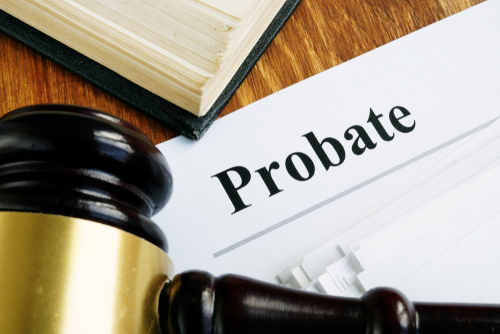While probate can be a lengthy and time-consuming process, it has a very important role in settling a person’s estate by validating their will, distributing property if a person dies without writing a will, or distributing assets if the will does not name a specific beneficiary to receive these assets.
Probate is a formal process in which a deceased person’s debts are paid, and their assets are distributed to their rightful heirs.
State laws vary, but generally, any estate that includes assets or property that were in the deceased person’s name alone will need to go through probate.
Assets without designated beneficiaries or payable-on-death or transfer-on-death provisions will also probably need to go through probate.
What is probate?
Probate is a process in which a person’s last will and testament is validated, and their property is distributed according to the instructions written in their will. The executor, or administrator, files the will with the probate court and initiates the probate process.
In the absence of a valid will, state intestacy laws will dictate how the assets are distributed through probate.
Many states have streamlined processes in addition to the traditional probate process. Meeting the criteria for a simplified probate process, usually for estates valued below a certain threshold, can potentially exempt you from the full probate process, leading to savings in both time and expenses.
Circumstances Which Generally Require the Probate Process
State laws vary, but probate is generally required in the following circumstances:
- Assets are held in the name of the deceased alone. Real estate, bank accounts, and investments that lack designated beneficiaries and are only in the deceased person’s name will need to go through probate.
- Bank and retirement accounts without designated beneficiaries may be subject to probate. It is important to review your accounts regularly. Sometimes, beneficiaries predecease the owner of the account, leaving the account without a living beneficiary to receive the assets. It is also a great idea to review your accounts periodically as your family structure changes. Births, deaths, marriages, and divorces throughout life may trigger changes in beneficiary designations.
- If a deceased person did not establish a living trust and fund it with their assets, these assets may require probate. Trusts are versatile estate planning instruments that can serve many purposes. Talk with your estate planning attorney to learn how trusts can protect your assets and ensure they are passed to your beneficiaries.
- Probate provides a means for creditors to make claims against an estate. During the probate process, the executor will provide notice to creditors. Anyone who has a claim on an estate will make this claim during the probate process.
- Probate is also helpful when there are disputes among beneficiaries as to who is the rightful heir. In some cases, more than one will may be found, and beneficiaries may dispute the validity of a will.
How can you skip probate?
Check with your estate planning attorney before skipping the probate process, as state laws vary. However, taking the following steps can reduce the likelihood that your estate will need to go through probate or will at least make the process easier for your heirs.
- Check all your bank and retirement accounts regularly and verify that they have named beneficiaries and secondary beneficiaries.
- Check your property deeds and verify which, if any, you own in your name only. If you and a partner own property such as real estate, a car, or a bank account as joint tenants with the right of survivorship, the asset is typically passed to the surviving owner without going through probate.
- Check your life insurance policies to verify that you have up-to-date primary and secondary beneficiaries on all policies.
- Verify that you have designated beneficiaries for your annuities. If you have annuities with beneficiary designations, these assets will generally transfer to your beneficiary as soon as the annuity carrier receives your death certificate.
- Consider establishing a revocable living trust. With a revocable living trust, you retain full control of your assets throughout your lifetime. When you die, your successor trustee will distribute the assets in your trust to your beneficiaries according to your trust instructions. Property and accounts that are funded into your trust are automatically passed to your beneficiaries without going through probate.
Probate laws vary by state. Some states have higher thresholds for smaller estates, which may exempt them from going through the full probate process. If you’re ready to write an estate plan or have questions about your current estate plan, contact us to learn more about your estate planning options.
Speak to a trusted advisor to help you develop your estate plan. Contact us and schedule a call with us at 855.631.3457 to learn more about how to protect those most important to you.








